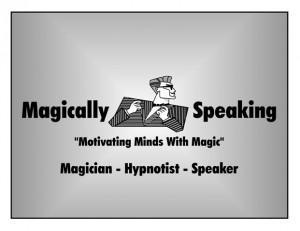In this Aeon article about “legendary comics author Alan Moore” (whose legend and existence had escaped my notice until now), Moore explains his decision to become, and call himself, a magician:
“The more I think about it, the more absolutist I get,” he says. “I believe exactly that art and magic – specifically writing, but art in general, and magic – are almost completely interchangeable. They share the same terminology, they match up in nearly every respect.”
So why call himself a magician, I wonder, rather than a writer or an artist? He replies that magic is the broader and earlier notion: “It includes all the other things, and it has other connotations as well.” A fair definition of magic, he says, might be “engaging with the phenomena of consciousness. All modern linguists and consciousness theorists seem to agree that we have to have the word for a thing before we can conceptualise it. The first magical act was the act of representation – just saying ‘this means that’.”
Forgive me for burying the lede, but that last sentence neatly sums Durkheim’s argument, in Elementary Forms of the Religious Life (Swain translation at pp. 237-39), that magical thinking is the evolutionary root of all thinking:
It is true that [magico-religious thought] is disconcerting for us. Yet we must be careful not to depreciate it: howsoever crude it may appear to us, it has been an aid of the greatest importance in the intellectual evolution of humanity. In fact, it is through [magic-religion] that the first explanation of the world has been made possible.
Of course the mental habits it implies prevented men from seeing reality as their senses show it to them; but as the senses show it, [experienced reality] has the grave inconvenience of allowing of no explanation. For to explain is to attach things to each other and to establish relations between them which make them appear to us as functions of each other and as vibrating sympathetically according to an internal law founded in their nature.
The great service that [magic and religion] have rendered to thought is that they have constructed a first representation of what these relations of kinship between things may be. In the circumstances under which it was attempted, the [magico-religious] enterprise could obviously attain only precarious results.
The essential thing was not to leave the mind enslaved to visible appearances, but to teach it to dominate them and [symbolically] to connect what the senses separated; for from the moment when men have an idea that there are internal connections between things, science and philosophy become possible. [Magic] opened up the way for them.
By this reasoning, which Robin Horton rightly calls Durkheim’s continuity thesis, we are all talking magicians.


